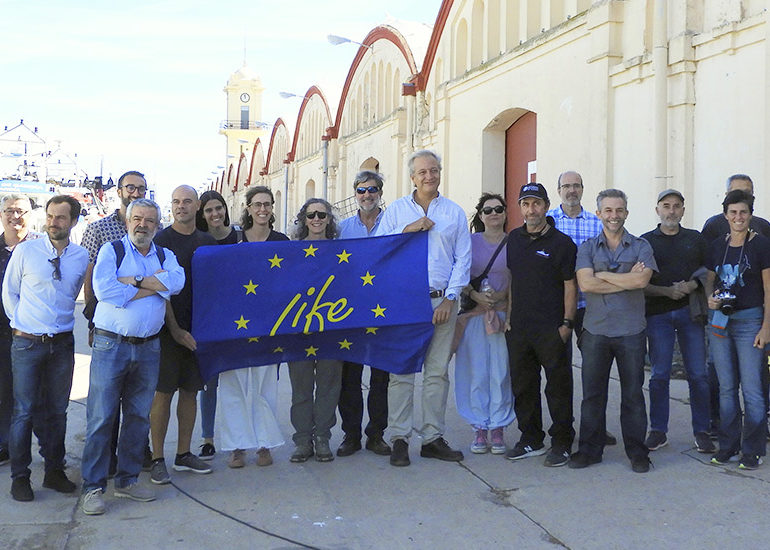

- Fecha 2019
- Responsable científico Víctor Sánchez
- Tipo de proyecto INV. COMPETITIVA PROYECTOS
- Organismo financiador ESA
Summary
The high sound pressure levels experienced by space rockets during liftoff are due, among other factors, to the reflection of sound waves generated by the rocket engines, on the launch pad. The acoustic field generated is so intense that it causes vibrations in the rocket that can cause damage to both the payload, usually satellites, and the rocket’s instruments. For this reason, the use of a metamaterial designed to absorb almost 100% of the incident acoustic energy is studied.
Research staff from the Universitat Politècnica de València (UPV), belonging to the Gandia Campus,, the Research Institute for Molecular Imaging Technologies (i3M), the Research Institute of Pure and Applied Mathematics and the Department of Continuous Media and Theory of Structures, have been working since 2019 on the Launch Sound Level Reduction project, funded by the European Space Agency (ESA).
Gandia Campus researcher Víctor Sánchez, an expert in acoustics, is leading this project on behalf of the UPV, which also involves the Polytechnic University of Madrid, Le Mans Université and the Spanish National Research Council (CSIC), as well as the Valencian company COMET Ingeniería S.L., which is the main contractor for the ESA project.
The project’s main objective was “the design, manufacture and characterisation of a prototype of an acoustic metamaterial capable of absorbing a large part of the acoustic energy at the rocket launch base“, said Rubén Picó, a researcher at the Gandia Campus.
More ESA collaborations
Before the project, the research staff of the Gandia Campus participated in two other projects funded by ESA: the Sonic Crystals for Noise Reduction at the Launchpad project and the Acoustic Noise Reduction Methods for the Launch Pad project. In the latter, Iván Herrero developed his doctoral thesis, “Acoustic Noise Reduction Methods for the Launch Pad”, defended in 2020.


